Our Ethnic Communities Development Fund (ECDF) supports ethnic communities in growing their skills, celebrating their culture, and participating in society. It also helps communities overcome local and international challenges that impact their well-being and resilience.
With the unfolding situation in the Middle East, the ECDF has been expediting funding approvals of community-led initiatives to encourage understanding, healing, and solidarity and promote social cohesion.
These initiatives, driven by various community organisations, are vital for nurturing a stronger and more inclusive society.
Bridging divides and promoting dialogue
At the heart of these initiatives lies a profound desire to bridge divides and foster dialogue.
The Asturlab Cultural Centre launched the "4 for 40 Stop the Silence Campaign" with a grant of $30,000.
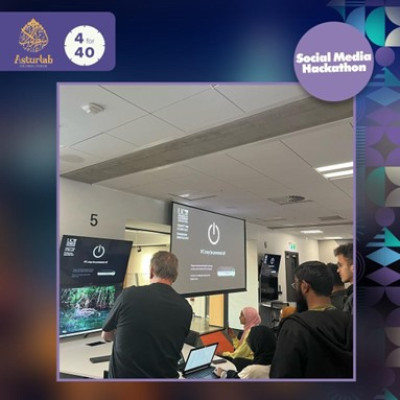
A group review of a photography workshop by Asturlab.
This initiative aimed to raise awareness about the Gaza crisis through digital platforms and community events.
Aiming to engage 5,000 to 10,000 New Zealanders from different backgrounds, the campaign sought to amplify diverse voices and experiences, fostering empathy and connection.
With a focus on youth, Asturlab Cultural Centre held a Social Media Hackathon event utilising the ECDF support. It offered a platform for creativity, collaboration, and essential social media skills development, underlining the importance of digital empowerment for our youth.
Another pivotal initiative that stands out is their creation of prayer spaces at various events in Christchurch.
This effort has been crucial in fostering inclusivity and ensuring community members can participate in public events without compromising their spiritual practices. They supported the Sounds of Silence music festival and the NZSO Beyond Words Concert (another ECDF-supported imitative).
Speaking about the impact these initiatives made, Ben Gresham, the Project Lead at Austurlab Cultural Centre, said, “Thank you, the Ministry for Ethnic Communities, for your continued support and partnership, particularly in these challenging times”.
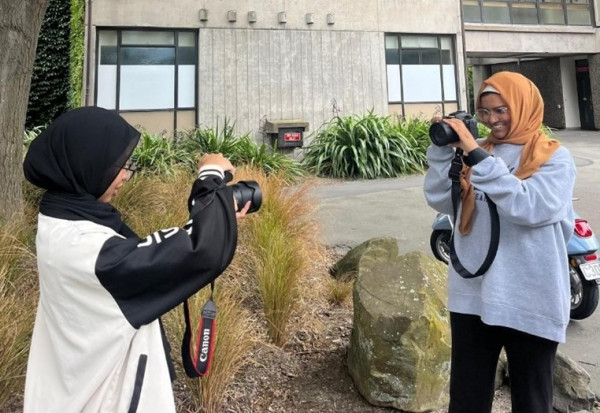
Participants learning photography techniques
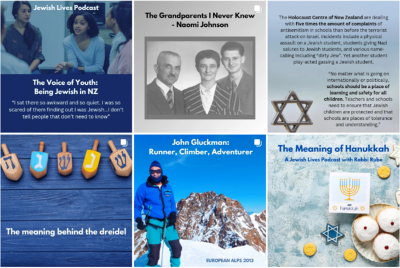
A screenshot shows the type of content produced through the project.
Meanwhile, the Jewish Museum of New Zealand Charitable Trust embarked on an ambitious project to create online content aimed at educating both the Jewish and wider communities about Jewish culture and history.
With a grant of $30,000, the museum sought to reach up to 10,000 individuals, providing a platform for cultural exchange and understanding.
David Robinson, a Trustee of the Jewish Lives (also known as The Jewish Museum of New Zealand) told us, “The grant we received from the Ministry of Ethnic Communities is assisting us in telling stories about Jewish life in Aotearoa.
“We are here to give insight into Judaism and Jewish communities, telling the stories of our people and the effect the current Middle East conflict has had on ordinary Jewish New Zealanders.
“Through these stories, we hope to mitigate the significant rise in antisemitism that has been experienced since the outbreak of the conflict in October 2023.
“We greatly appreciate the support given by the Ministry of Ethnic Communities during such troubling times.”
Impact and future outlook
Recognising the urgent need to address rising antisemitism, the New Zealand Jewish Community Security Group Charitable Trust undertook a groundbreaking survey with an $80,000 grant.
Over 12 months, the survey would track antisemitic activity in New Zealand, providing vital insights to key agencies and empowering the Jewish community to address potential risks.
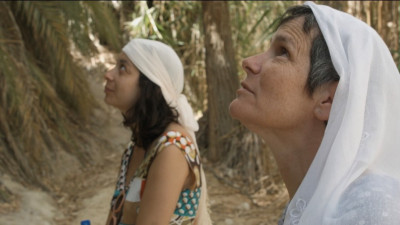
Still shots from the documentary.
In a testament to the power of personal stories, Steadfast Productions received $30,000 towards their documentary about the remarkable friendship between an Israeli restaurateur and a Palestinian paediatric nurse. The film transcends borders and prejudices, offering a beacon of hope amidst turmoil.
Avigail Allan, Director of Steadfast Productions, said, "This documentary project tells a vital and urgent story. It tells us how a Palestinian and Israeli woman met each other in Tamaki Makaurau, Auckland, in 2013. For ten years, we follow their story as they learn to love one another truly. Their newfound love changes them forever.
During such a difficult period for our people in Israel-Palestine, hope is hard to come by. We believe this story, which focuses on humanity, mutual understanding, and a desire to learn about the “other,” is deeply impactful. We couldn’t have come this far without the ECDF's support.
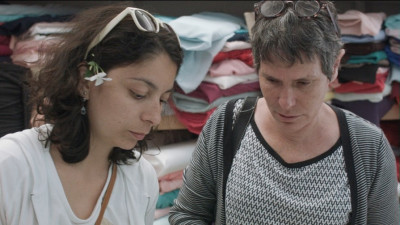
Still shots from the documentary.
Art, again, emerged as a powerful medium for expression and healing, with Lot23 Media Ltd's "Make Art not War" project receiving $12,054 in funding.
Through a participatory art installation, the project sought to visualise the human cost of conflict. It invited members of the public to create origami paper cranes symbolising peace and remembrance.
Collaborating with Palestinian Youth Aotearoa, the initiative embodied the resilience and solidarity of communities coming together in the face of adversity.
The Lady Khadija Charitable Trust has been granted $18,750 to facilitate a series of peace conversations in New Zealand.
The aim is to promote peace and harmony while proactively managing escalating tensions between different communities affected by the Israel and Gaza conflict in New Zealand.
These conversations are critical in instilling understanding and reconciliation among diverse groups. Peace conversations events are anticipated to draw up to 270 participants from various communities in Canterbury.
The Religious Diversity Centre in Aotearoa New Zealand Trust sought ECDF support with $54,680 for its Weaving Empathy project.
Acting as an umbrella organisation, the project will be led by a university chaplaincy group. It aims to bring together individuals affected by the Israel and Gaza conflict, providing them a safe space to connect and engage in meaningful discussions and communal dinners.
The initiative plans to conduct seven non-violence workshops and host ten communal dinners open to all communities. The project's potential impact on fostering empathy and understanding is significant.
As we move forward, we will continue to support community-led initiatives that promote peace, understanding, and resilience, creating a society where every voice is heard, and every community is valued.
